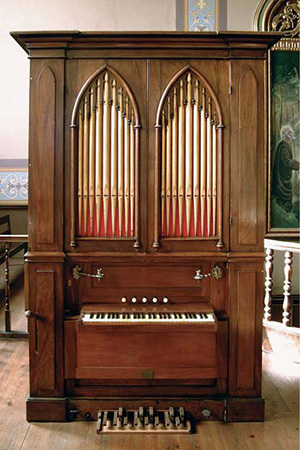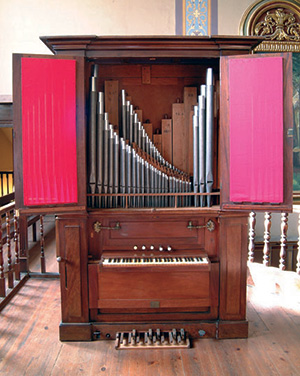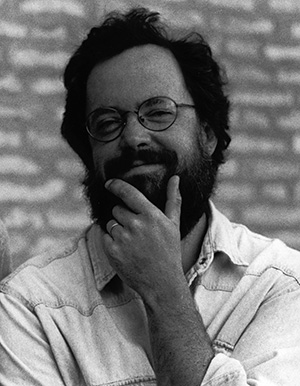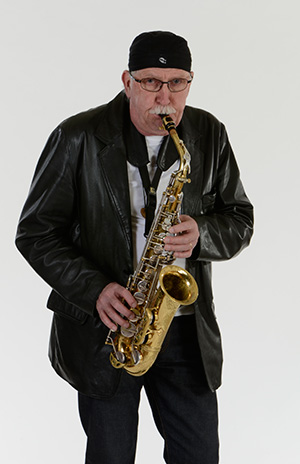
Wednesday, 23 October, 9.30, p.m.
Church of São Martinho
Johannes Landgren: organ
Håkan Lewin: alto saxophone
During 2013 a collaborative project will be performed by the two organizations Music Against Violence (MAV) in Gothenburg and Safe Youth Future (SYF) in Gaza. The Lewin-Landgren-Björänge trio, representing MAV, will perform together with instrumentalists and singers from the Gaza music school, which is a part of the Beir Zeit University – Edward Said Institute for Music. In different places in Gaza and the West Bank the concert ”Gaza singing for Peace” will be performed. The project starts in March 2013, when the Swedish trio makes its first visit to Gaza. Furthermore there are plans, through SYF, to expand the project to Egypt. Within this context the project will also have links to Sweden through visits and workshops.
Music Against Violence was founded in 2005 and the overall idea is to use music as a means to bring people together and form a protest against a society which gradually becomes more and more violent. Both the message and the music as such bring people together, for the benefit of a less violent world and a future in peace.
The organization MAV was founded through the initiative by Håkan Lewin and Johannes Landgren together with Brittmo Bernhardsson and Ingemar Henningsson. The original idea was to create a concert as a musical protest against the increasing violence in the society. The result was a concert, consisting of primarily Afro American music but also of music composed by other composers taking stand against violence. Several musicians all over the world are linked to the organization and concerts against violence are performed in Russia, the USA, China, Belarus, South America and Southern Europe. In Gothenburg every year on the 24th of October (on the UN day), a concert is arranged for this purpose. The project ”Gaza singing for Peace” is the first time that the organization MAV is active in the middle of a severe political and military conflict. The concept here is to form an ensemble consisting of people from various religious traditions and of different gender. They will work together and the result will be a concert; ”Gaza singing for Peace”.
The music is primarily derived from the Afro-American tradition, where the keywords are freedom, non violence, peace and gratitude for life. The original message comes from the North American slaves and their longing for freedom from slavery. Through using this music in another context the project wants to send a signal pointing towards a future society where peaceful coexistence, regardless of cultural or religious background, is the only way forwards. There is a great need for an alternative to violence and revenge. Music can help to reduce the pressure and frustration, which is today a great part of the everyday life of children and youth in the area, and might even formulate hope for the future. Collaboration within the culture area and with foreign cultural workers is important. Music linked to a message of non-violence might bring people from different backgrounds together and formulate reconciliation instead of violence. This could be a small step towards peace.
Håkan Lewin and Johannes Landgren
Duke Ellington (1899-1974)
Black and Tan Fantasy
Kenny Graham (1924-1997)
Sunday
Duke Ellington
Come Sunday
Almighty God
It's Freedom
Thad Jones (1923-1986)
A Child is born
Duke Ellington
Somebody cares
Billy Strayhorn (1915-1967)
Lotus blossom/Thank You
Tradicional (arr. Håkan Lewin)
He's got the whole world in his hands
Participants
|
Johannes Landgren was born in Lapland (northern Sweden) in 1961. He began his studies at the School of Music and Musicology of Göteborg University in 1980. In 1985 he obtained his degree in Church Music, and in 1987 received his soloist diploma in organ repertoire and organ improvisation in 1990 he finished his studies in choir pedagogy, and in May 1997 he presented his PhD dissertation on the organ music of Petr Eben. In recent years Landgren has taught at the School of Music of Göteborg University. As an organist and conductor he has toured many countries in Europe and made a number of CD recordings and broadcast recordings in Sweden and abroad. At present he is conducting postdoctoral research at the Faculty of Arts at Göteborg University, where he also holds the position of professor of organ at the Academy of Music and Drama. Landgren is active as a freelance organist and conductor and has participated in many international competitions and festivals, winning a number of prestigious awards. He has, as conductor and organist, made recordings for radio and television in Sweden, Belgium, Ireland, the Czech Republic, Germany, Denmark, Finland and Estonia. He has also made more than 20 CD recordings, including renaissance, baroque and contemporary music, which have been enthusiastically reviewed. Together with Håkan Lewin, he has toured the United States, Russia and many European countries and made several TV, radio and CD recordings. |
|
Håkan Lewin is an alto saxophonist who transcends genres, though his roots are clearly in jazz. He and the organist Johannes Landgren have enjoyed great success both in Europe and the USA. The duo, Lewin-Landgren will collaborate during the coming years with many interesting international musicians and ensembles. In 2005 they were founding members of the organization “Music Against Violence”. Lewin was the recipient of the Christer Boustedt Award in 2007, one of the most prestigious jazz awards in Sweden. In April 2009 the Lewin-Landgren Duo collaborated with the Sandviken Big Band and in Autumn of the same year with other big bands in special arrangements of Duke Ellington music for pipe organ, saxophone and big band. Lewin has over the years played with many international stars, such as Benny Bailey, Sahib Shihab, Thad Jones, Clark Terry and, for many years, the Ellington trumpet player Willie Cook. In 1987 Lewin represented Sweden in the European Radio Union Orchestra in Amiens, France. At the beginning of the 1990s he toured Estonia and also played in Nizhny Novgorod in Russia. He was one of the inaugural members of the first ever Nizhny Novgorod Jazz Festival, and, according to the organizers, he was the first jazz musician to play there from the West. In Spring 1994 he toured Argentina with the Estonian piano player Aldo Meristo Argentina, where they played at various festivals. |
Notes about the Organ
 Church São Martinho, Funchal
Church São Martinho, Funchal
The oldest documental reference it has been possible to find concerning the existence of a pipe organ at the parish church of São Martinho goes back to 1806. According to a record set down by the treasurer of the Confraria de Nossa Senhora do Rosário (Fraternity of Our Lady of the Rosary), an organist was contracted in 1806 to tune the organ (ARM Confraria: 2), and there are other later records referring to maintenance work.
In the record of expenditure for the year 1862, to be found in the Accounts Book (1834-1877), the vicar José Rodrigues de Almada noted down the sum of 200,000 réis for payment of the new organ, specifying that 150,000 réis were contributed by the Benefice of the church; 40,000 réis was credited from the amount paid for the old organ and 10,000 réis was donated, thus making up the real price of the instrument (ARM Fábrica 1834-1877: 27).
From this source it has proved impossible to determine the conditions for its transport, or where it was acquired. What is certain is that in 1863 the organ was already in this church, for that year Father João G. de Noronha was contracted to tune the said instrument, receiving 2,000 réis for his work (ARM Fábrica 1834-1877: 28).
With the transfer of the parish to the newly consecrated church in 1918, the organ was then taken there, where it continued to function until 1934. According to the records found in the Accounts Book (1877-1954), the organ underwent successive maintenance works, the most expensive being in 1879 (a payment of 38,000 réis to Nuno Rodrigues) and, especially, in 1916, because it was very out of tune and had a number of technical problems (ARM Fábrica 1877-1954: 22-25v).
As an instrument to accompany and enhance divine worship, the organ of the church of São Martinho will have participated in various solemnities, and in the year 1917 there is a record in the Accounts Book of receipt of 10.700 réis “arising from the contribution of the organ to the festivities” (ARM Fábrica 1877-1954: 26).
Registration
Stop Diapason Bass (Sol1-si)
Stop Diapason Treble (dó1-fá3)
Principal
Flute
Dulciana
 Johannes Landgren
Johannes Landgren Håkan Lewin
Håkan Lewin